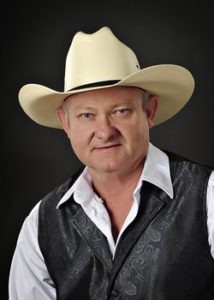 Lone Wolf is a novel for those who believe in true love and sacrifice for that one special person you love. To love someone so much you are willing to die for them to insure they are safe. It unfolds in the time frame of the 1840’s, in a wilderness of Montana which had not been tamed as of yet. It was a time period when peoples lives where lived in the harshest elements and death was a reality. This interview with author Weldon R. Shaw is all about the process behind the book. Let’s find out what Weldon has to say…
Lone Wolf is a novel for those who believe in true love and sacrifice for that one special person you love. To love someone so much you are willing to die for them to insure they are safe. It unfolds in the time frame of the 1840’s, in a wilderness of Montana which had not been tamed as of yet. It was a time period when peoples lives where lived in the harshest elements and death was a reality. This interview with author Weldon R. Shaw is all about the process behind the book. Let’s find out what Weldon has to say…
Why was it important for you to write Westerns? What drove that ambition?
I am a country boy who has always had a love for history, especially the history of what our country was built on. Like most kids during my era, I was raised on the Old West movies. I am a quarter Chikasaw Indian out of Oklahoma, and I love to read, talk and learn about the Native American cultures. The idea for Lone Wolf came about because of this love for the Native American culture.
How closely does the Western mirror the American way of life?
Lone Wolf is an action romance. It is built on good morals and values. It’s about breaking through cultural barriers, establishing trust between a man and a woman. It is about real life and the forming of a true friendship that leads to true love. The character Lone Wolf was brought to life by the values I was taught as a kid on how a woman should be treated.
What are your favorite Western movies?
That is an easy one—any Western made by “The Duke,” John Wayne. I am also a big Sam Elliot fan, as well. My favorite writer is Louis L’Amour. He was a Rhodes Scholar and put great detail into his works.
How did those movies influence the way you write?
The Western movies were always about the true American values, the good against the bad. I think movies like this not only influence the way you write, but more importantly, I think they influence young minds on how to carry themselves in life as they become adults.
Would you ever write a book about the Alamo or other historical events?
My first novel released was a historical fiction titled Pachuco. It was about the transformation of Alta California to California and how it affected the Hispanic people through the years of a changing and evolving government. When I write, I try to incorporate historical and cultural elements into my novels. I am very selective of what I write about. I try to stay away from the subjects that have been written about numerous times.
Do you believe in good and bad? Is that a concept that all who write Westerns should keep in mind?
Yes. Even in Lone Wolf, the story line is built on good and bad. Lone Wolf will not hesitate to protect another person who cannot protect themselves, especially a woman. Let’s face it, there are very few books or even movies out there that are not based on good and bad. It is as much about the story’s plot as any character in it.
Who is the greatest American folk hero from the West, in your opinion, and why?
I would probably say the James Younger gang. They became outlaws—and who they were—because of people who had the backing of the federal government. They were considered bushwhackers during the Civil War because they attacked Union-based cities and robbed them. The Union also had their share of atrocities in the killing of civilians and the burning down of farms and cities, as well. I guess, overall, the Civil War in itself produced many folk heroes from both sides because it was the turning point of this country.
What will your next book be about?
Well, I am writing Lone Wolf: The Resurrection, novel 2 of the Lone Wolf series right now as we speak. I will end the Lone Wolf series in novel 3. I have a Western in mind that is strictly an idea at this point. I also have a romance novel call Victoria In Search Of Myself that I need to finish. Also a horror novel call Interview With The Immortal One.
Do you think it’s important to have a large publisher as a Western author?
It is not necessary to have a large publisher, but if you get to the point where you are contracted by a major publishing house, it shows you that you have arrived as a writer, and your ability as a writer is being recognized. Is it hard for a new writer to get into a large publishing house? Yes, very hard because they require your work to be submitted to them through an agent. Is it hard to get an agent? Most difficult hurdle to jump over that you can imagine. I have been fortunate. All my books have been contracted by traditional publishers.
Are you ever surprised by how many Western readers there are in the world?
No, not really. I believe people like books about old history and, more importantly, good versus bad. They like to see that guy portrayed who will stand up with good morals and take on a battle even if it isn’t his battle.
Would you ever write a non-Western?
I have two non-Westerns written as we speak. Pachuco is a historical fiction which starts in the 1860s and ends in the 2000s; and I have a self-help for parenting called The Rise And Fall Of Our Youth. My next romance novel that I will write is Victoria In search Of Myself. It will be based in current time.
How many Westerns have you written?
The Lone Wolf series will be the first that was written in the Old West time frame. Pachuco is a narrated novel by an old man in his 80s who walks the reader through four generations of his family starting in the 1860s and ending in the 2000s.
How have reviewers treated your books?
The reviews of my books have been fantastic. I sent Lone Wolf out to several female readers to get a feel for their reaction, and they are ecstatic about it. Even though Lone Wolf is considered a romance, it is based on action, and because of this the men readers will love it, as well.
If you could travel back to the West and be a cowboy—would you?
Well, there is a lot to be said about that time period. Life was simpler as far as fewer distractions and less government oversight, but life was harsher. The simple things we take for granted was a big deal back then. Food is more plentiful now, you live in an air conditioned house now, even if it is a swamp cooler. Back then, there were no cool houses. Food was not plentiful nor was money. The luxury of taking a bath, which most of us are use to taking once a day, was not that way back then.
If you were a ranch hand, you would more than likely go several days before you bathed, in some cases months. For a lot of them back then, it was a horse trough or nearby creek. Going to town was a luxury and not a daily occurrence. Electricity—how many can do without that? No, I think I am happy living in this day and age. It is not perfect, but it is convenient.
Are you looking for a great new Western book to read? Why don’t you pick up a copy of “Lone Wolf: A New Beginning” today from Amazon.


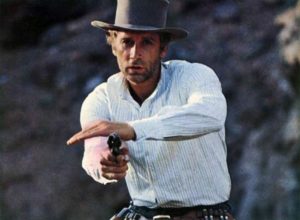 From movie star to TV star to award-winning author, Alex Cord has done it all. His new book has taken him back to his roots– the Western. When Alex was asked to write a Western, it didn’t dawn on him how popular this decision would turn out to be. Western readers are still a force in the book world, and this new Cord Western should prove to be one of the most popular Western releases of the year. How does a multi-faceted man like Alex Cord approach writing a Western? Let’s find out… This is the first interview with Alex Cord about his new Western novel, “High Moon.” Enjoy!
From movie star to TV star to award-winning author, Alex Cord has done it all. His new book has taken him back to his roots– the Western. When Alex was asked to write a Western, it didn’t dawn on him how popular this decision would turn out to be. Western readers are still a force in the book world, and this new Cord Western should prove to be one of the most popular Western releases of the year. How does a multi-faceted man like Alex Cord approach writing a Western? Let’s find out… This is the first interview with Alex Cord about his new Western novel, “High Moon.” Enjoy!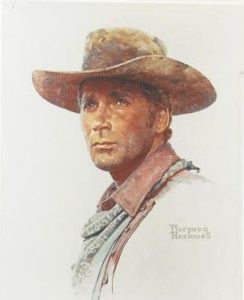 What comes next?
What comes next?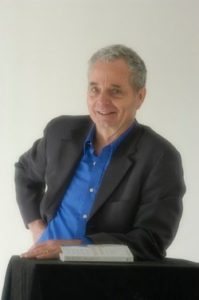 An interview with the ebullient David Watts is always something to cherish. From the astounding beauty of his writing, one must believe that he is one of the writers we can truly call talented. His new book, “The Lucifer Connection,” is currently riding high on the bestseller charts, and this interview will explain how that so very popular book came to be. This interview is frank, fascinating and free to read. Read on…
An interview with the ebullient David Watts is always something to cherish. From the astounding beauty of his writing, one must believe that he is one of the writers we can truly call talented. His new book, “The Lucifer Connection,” is currently riding high on the bestseller charts, and this interview will explain how that so very popular book came to be. This interview is frank, fascinating and free to read. Read on…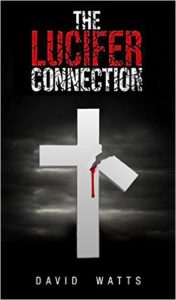
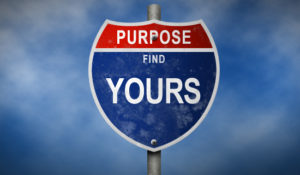 Many people ask me how authors make it. What causes author X to be a bestseller? Was it a special trick of the light? Was it luck? What causes success? I’ve explained many times that consistency is one of the most important ingredients to success. The ability to push your books with consistency is crucial to the success of having your book read by the reading public—but the other key ingredient is purpose. I want to talk a little about purpose here.
Many people ask me how authors make it. What causes author X to be a bestseller? Was it a special trick of the light? Was it luck? What causes success? I’ve explained many times that consistency is one of the most important ingredients to success. The ability to push your books with consistency is crucial to the success of having your book read by the reading public—but the other key ingredient is purpose. I want to talk a little about purpose here.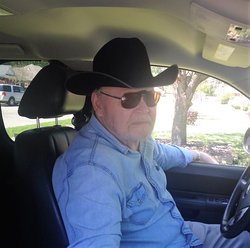 For Jeff Breland, it comes naturally. It’s a natural thing for him to sit down with a pad and pencil to write a story. A story that could take him many places, to many different times. For readers, it’s a natural thing to want to read a Breland story. An educated man might wonder at the style and scope of today’s literature– but that same educated man will sit down and voraciously read a Breland bonanza without a care in the world. This interview with Jeff Breland should be educational and fun. It should balance great writing with the ability and confidence a writer needs to express their ideas in a coherent and educational way. Let’s see what the ebullient Mr. Breland has to say…
For Jeff Breland, it comes naturally. It’s a natural thing for him to sit down with a pad and pencil to write a story. A story that could take him many places, to many different times. For readers, it’s a natural thing to want to read a Breland story. An educated man might wonder at the style and scope of today’s literature– but that same educated man will sit down and voraciously read a Breland bonanza without a care in the world. This interview with Jeff Breland should be educational and fun. It should balance great writing with the ability and confidence a writer needs to express their ideas in a coherent and educational way. Let’s see what the ebullient Mr. Breland has to say… 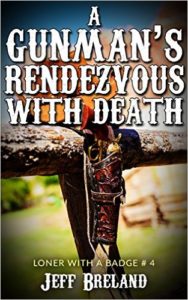
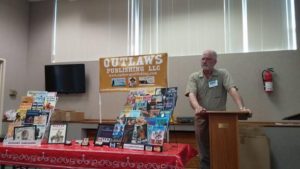 Being a Western writer is one of the most rewarding experiences a man can have. Being a Western publisher must give J.C. Hulsey a pile of pleasure. This interview is all about the man behind the books. It’s all about writing books. His books have sold thousands of copies, and have won awards. His first book “
Being a Western writer is one of the most rewarding experiences a man can have. Being a Western publisher must give J.C. Hulsey a pile of pleasure. This interview is all about the man behind the books. It’s all about writing books. His books have sold thousands of copies, and have won awards. His first book “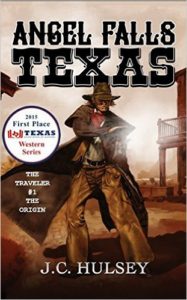
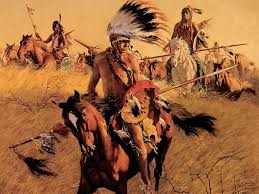 Westerns have been captivating audiences around the world for a long, long time now. Western books, in particular, have been incredibly popular– and no writer has been more popular with modern Western readers than John D. Fie, Jr. Since arriving on the scene, he has scored three major hits. His books have been read wherever books are read.
Westerns have been captivating audiences around the world for a long, long time now. Western books, in particular, have been incredibly popular– and no writer has been more popular with modern Western readers than John D. Fie, Jr. Since arriving on the scene, he has scored three major hits. His books have been read wherever books are read.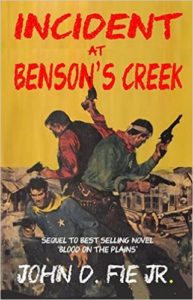
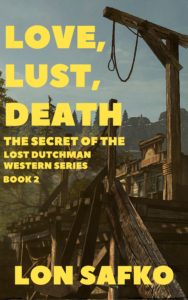
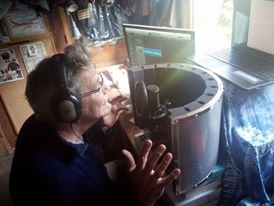 This new interview is with audiobook voice Paul Provo. Paul, who resides in Spain, has just completed working on the mammoth task of recording a train orientated audiobook for the Railroad Artifact Preservation Society in Amarillo. This brilliant new book will entertain all train enthusiasts from 1 to 101.
This new interview is with audiobook voice Paul Provo. Paul, who resides in Spain, has just completed working on the mammoth task of recording a train orientated audiobook for the Railroad Artifact Preservation Society in Amarillo. This brilliant new book will entertain all train enthusiasts from 1 to 101. 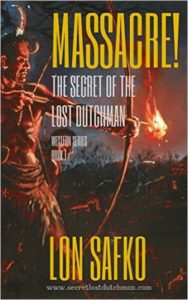
Recent Comments